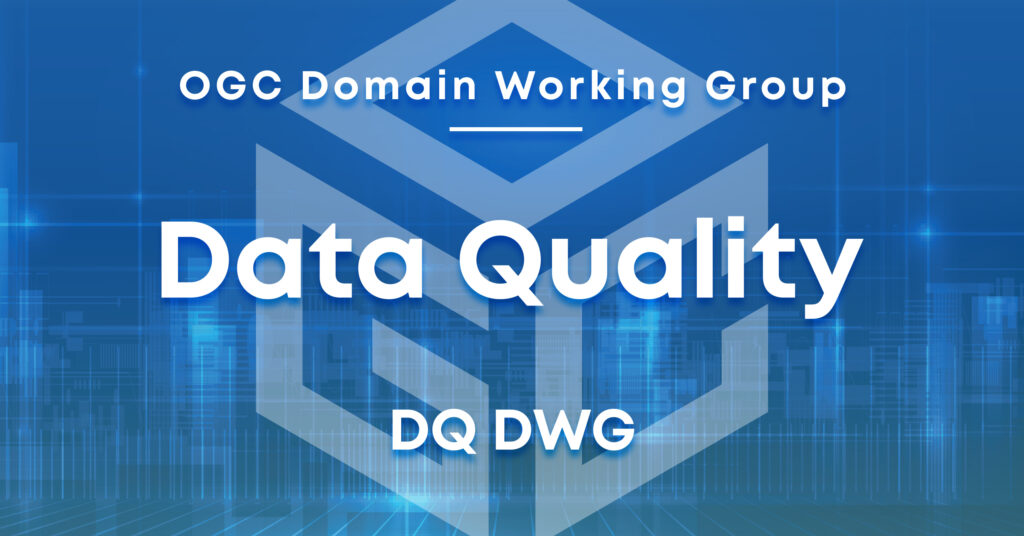OGC announces Christy Monaco as new Chief Operating Officer
As OGC’s COO, Christy will use her experience with federal agencies, partnership-building, event management, and member success to help grow and shape the Consortium.

The mission of the Data Quality (DQ) DWG to establish a forum for describing an interoperable framework or model for OGC quality measures and services to enable access and sharing of high quality geospatial information, improve data analysis, and ultimately influence policy decisions.
The WG will attempt to define a framework and a grammar for the certification and communication of spatial DQ. This method to describe and communicate data quality measures will reference, but not be limited by, a number of categories, such as spatio-temporal accuracy and resolution, completeness, consistency and integrity, semantic interoperability and lineage. One of the major roles of DQ DWG is to participate in ISO/TC211 and OGC in the development of standards for data quality and the review other related standard.
The burgeoning volume of geospatial information, coupled with its emerging and sometimes unanticipated applications, marks a new era in the field of spatial data. This remarkable expansion is in sync with the broader trend of increased data accessibility and global social networking on the Web, driving the demand for more structured and accessible spatial data. Recognizing the need for standardization in data exchange, early efforts in Europe and North America to establish Spatial Data Transfer Standards have catalyzed the formation of Spatial Data Infrastructures (SDIs) on a global scale. In this context, the Data Quality Domain Working Group (DWG) within the Open Geospatial Consortium (OGC) and initiatives like INSPIRE are at the forefront of advocating for interoperability standards.
The Data Quality DWG acknowledges that interoperability issues can be multifaceted, concerning data, software, or semantics, each requiring clear data quality descriptors and assessment criteria. Such measures are crucial for users to gauge the suitability of the data for their specific applications. As SDIs become more integral to planning, environmental assessments, and various decision-making processes, the need for precise standards grows. Without these standards, there is a significant gap in users’ ability to determine the fitness for purpose of the data they are utilizing, which the Data Quality DWG aims to address by establishing clear, actionable guidelines for data quality within the geospatial community.
The Data Quality Working Group (DWG) is embarking on establishing a comprehensive framework and a detailed grammar for the certification and communication of spatial data quality (DQ). This approach will articulate the measures of data quality through various dimensions such as completeness, positional and thematic accuracy, integrity, and semantic definition, which includes consistency, validity, classification, and language. Furthermore, the framework will encompass aspects like projection, scale, and temporality. The DWG’s method will align with the existing standards outlined in ISO 19113, 19114, and the more recent 19138, ensuring a robust and consistent approach to data quality. Additionally, the ISO 19115 metadata standards will be referenced for the storage and articulation of data quality measures and descriptors. Looking ahead, the DWG also anticipates exploring the concept of data product ‘typing’ or categorization, which could serve as an implicit indicator of data quality, providing users with an immediate sense of the data’s trustworthiness and applicability for their needs.
The DWG will collaborate with other OGC Working Groups and relevant standards organizations such as ISO.
Working Group Chairs: Christin Henzen (Technische Universität Dresden), Ivana Ivánová (Curtin University), Joan Maso Pau (Universitat Autònoma de Barcelona (CREAF)), Sam Meek (Helyx secure information systems ltd).
Receive the latest news on OGC.
© 2024 Open Geospatial Consortium. All Rights Reserved.